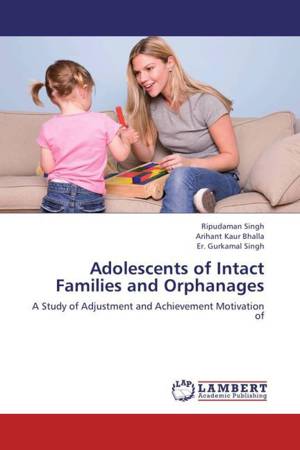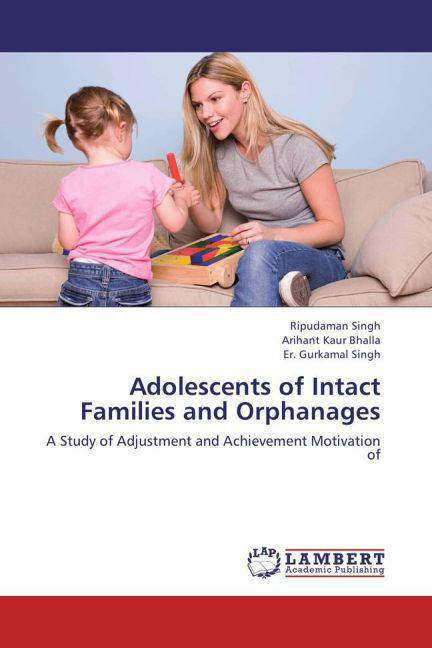
- Afhalen na 1 uur in een winkel met voorraad
- Gratis thuislevering in België vanaf € 30
- Ruim aanbod met 7 miljoen producten
- Afhalen na 1 uur in een winkel met voorraad
- Gratis thuislevering in België vanaf € 30
- Ruim aanbod met 7 miljoen producten
Zoeken
Adolescents of Intact Families and Orphanages
A Study of Adjustment and Achievement Motivation of
Ripudaman Singh, Arihant Kaur Bhalla, Er. Gurkamal Singh
Paperback | Engels
€ 46,95
+ 93 punten
Omschrijving
Confucius thought that happiness and prosperity would prevail if everyone would behave "correctly" as a family member. The cultural importance of the family is also emphasized in the Old Testament. The earliest codified literature in India, the Rig-Veda, which dates back from about the last half of the second millennium B.C., and the Law of Manu, which dates from about the beginning of Christian era, devote much attention to the family out of all human groups, family is considered the most important basic group. It is a very small social group which basically consists of parents and their children. The family, in turn, can continue to exist only if it is supported by the larger society. Children who are deprived of love and affection from their biological parents, either due to death of their parents or abandonment of children by parents are called Orphan Children. An orphanage is a public institution dedicated for the care of orphans. These orphanages look after the orphans for food, clothes, shelter, education, culture and health.
Specificaties
Betrokkenen
- Auteur(s):
- Uitgeverij:
Inhoud
- Aantal bladzijden:
- 68
- Taal:
- Engels
Eigenschappen
- Productcode (EAN):
- 9783659378812
- Verschijningsdatum:
- 24/04/2013
- Uitvoering:
- Paperback
- Afmetingen:
- 150 mm x 220 mm
- Gewicht:
- 113 g

Alleen bij Standaard Boekhandel
+ 93 punten op je klantenkaart van Standaard Boekhandel
Beoordelingen
We publiceren alleen reviews die voldoen aan de voorwaarden voor reviews. Bekijk onze voorwaarden voor reviews.








